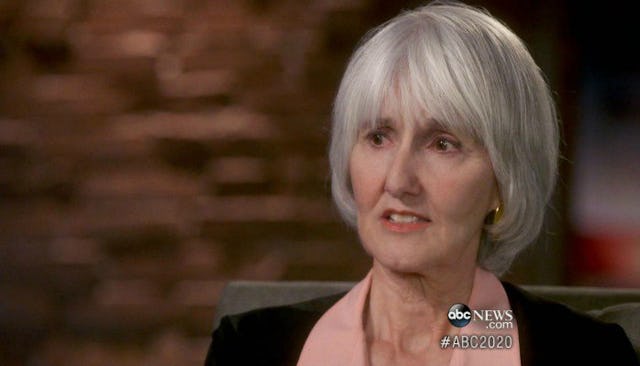Don’t Blame Me For The Sins Of My Children

Anne Marie Hochhalter, a survivor of the Columbine school shooting tragedy, recently wrote a letter to Dylan Klebold’s mother, Sue, forgiving her for her son’s sins. In the heartfelt letter, written on the eve of Klebold’s appearance on ABC’s 20/20 to discuss her son’s horrific actions, Hochhalter wrote, “Hindsight is truly 20/20 and I’m sure you have agonized over what you could have done differently.” She went on to tell Klebold that she no longer held ill will toward her and she wished her well.
As I read and reread Hochhalter’s letter and then later watched Sue Klebold on 20/20, I couldn’t help but ask myself: Why have we judged Klebold so harshly for the actions of her son? Why has she been vilified in the press though she has committed no crime? What reason could we have for demanding an apology from a woman who had no idea that her son was to carry out the worst mass school shooting in U.S. history?
During the interview, Klebold used words like “gifted” and “likable” and “hands-on parenting” to describe her son. Images of him playing with Legos, fishing near a Colorado lake, and wearing a Red Sox hat and a lopsided smile flashed across the television. She described a seemingly idyllic childhood: educated parents, a stable home, good schools, a solid network of friends. Statistics accompanied the images: 85 percent of mass school shooters are adolescent boys, 50 percent of the shooters do well in school, and 73 percent have never been arrested.
Sue Klebold’s story had me examining my own life: I am the parent of a seemingly well-adjusted adolescent boy who loves Legos, does well in school, and is never in trouble. And he loves the Red Sox, too.
There by the grace of God go I, and who am I to judge?
I sat, riveted, waiting for the a-ha moment, that second where she realized her son was disturbed, when she might have done something, intervened somehow, to prevent this tragic school shooting. And yet, even 17 years later, the shock that her son was capable of committing such a heinous crime is still written all over her face. She, like the rest of us, has been trying to figure out where she went wrong, what she could have done differently.
As a mother of a tween boy, my heart aches for her. My eyes filled with tears as I heard her say she’s agonized over all of her parenting decisions every single day since that fateful April day in 1999. As uncomfortable as it is to give credence to her grief, we must remember that she lost her son that day, too. Some would argue she lost him long before the day of the shootings, but the fact remains that a mother was left behind—bewildered, shocked, and forced to analyze every action she ever made as a parent.
It’s easy to look at her and place blame. It’s easy to judge her, to vilify her, to spew words of hatred toward her, because we don’t want to admit the truth to ourselves: We see our parenting in hers. It could happen to us, too.
We see our own parenting insecurities when we look at Sue Klebold’s failure to recognize the warning signs that her son was in trouble. We see our reticence to report another child’s behavior as suspect for fear of offending neighbors or fellow parents. We see our hesitation to openly speak to another parent about their choices as a parent. Right, wrong or indifferent, many people failed Dylan Klebold and the Columbine victims that day, not just Sue Klebold. She did the best she could, just like the rest of us.
Every day, I make choices about parenting my tweens. I try to do everything the experts say: Ask open-ended questions and listen to the answers. Be present and in the moment for those times when they really need me. I force them to talk to me and refuse to let them shut down emotionally. And on the tough days when they act out or I’m sure I’m screwing them up, I worry that today could be the day that might alter the course of their lives and cause them to make terrible choices when they get older. I worry that even with the best of intentions every day, it might not be enough.
I worry that I will be judged by the sins of my children, no matter how hard I work at being a good parent.
And I’m sure Sue Klebold nursed the same kinds of fears, right up until April 20, 1999.